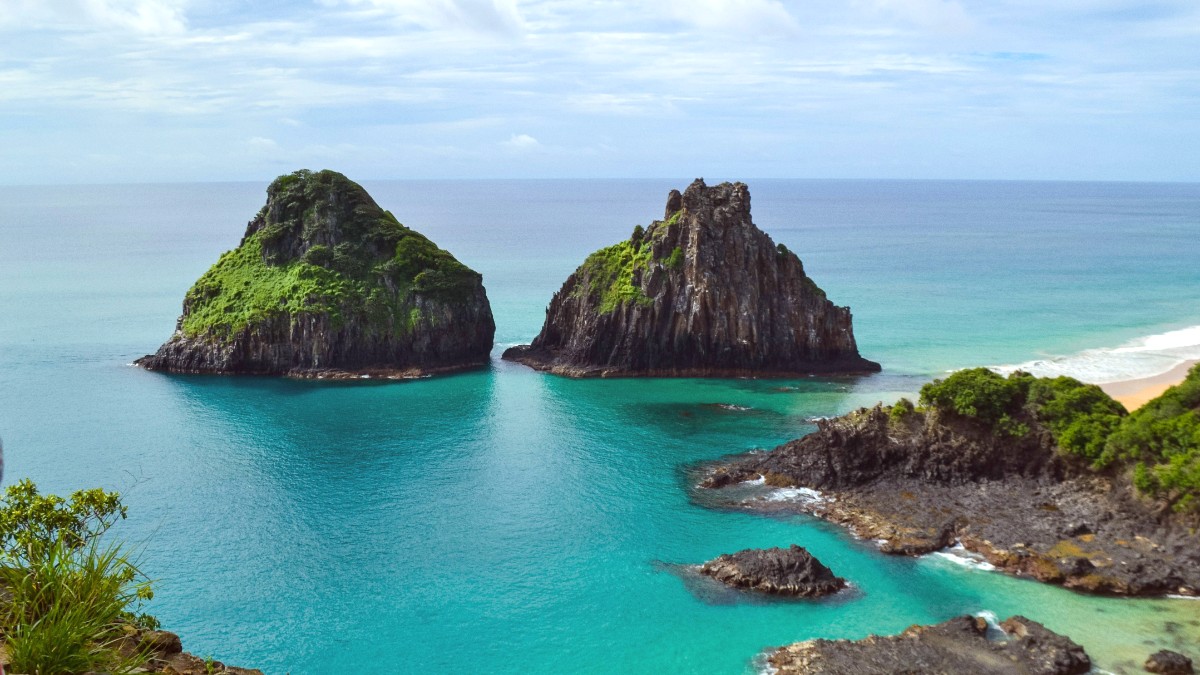
Brazil
Fernando de Noronha presents a tropical climate year-round. Two distinct seasons influence travel experiences: the Dry Season (May to October) with less rainfall and calm seas, and the Rainy Season (November to April) with higher humidity and frequent, intense, but usually short-lived showers.
Seas can be rougher during the rainy season, specifically from January to March, which is the best season for surfing due to larger waves. Temperatures generally range from 25°C to 31°C (77°F to 88°F).
For diving and snorkeling, plan a trip for August to October for the calmest seas and best underwater visibility.
For surfing, visit from December to March to catch the largest waves. May to October provides sunnier days and calmer waters, suitable for general beach relaxation and island exploration.
Brazilian holidays, Carnival, peak demand
atmosphere, full range of services.
Highest prices, large crowds.
Balance of weather, fewer crowds
Pleasant weather, potentially better prices.
Some activities might see limited availability.
Transition months, some rain
Quieter, lower prices. Good for surfing in March.
Possible heavy rain, rougher seas for diving.
Brazil extends visa-free entry for citizens of many countries, including the United States, Canada, Australia, and most European Union nations. These travelers may stay for up to 90 days for tourism purposes. An extension for another 90 days is often possible, with a maximum of 180 days within a 12-month period.
A passport valid for at least six months beyond your departure date, with two blank pages, is necessary. Proof of onward or return travel, sufficient funds for your stay, and accommodation bookings are also useful. Travelers from other countries should consult official Brazilian sources for specific visa requirements.
Validity for 6 months beyond departure; 2 blank pages.
Evidence of confirmed flight out of Brazil.
Demonstrate capacity to cover stay (bank statements/credit limits).
Confirmation of lodging for your entire stay, especially for Fernando de Noronha.
Occurs at your first entry point into Brazil (e.g., Recife, Natal).
Fernando de Noronha is a reputation as one of Brazil's most expensive destinations due to its remote location and protected status, necessitating imported goods.
The local currency is the Brazilian Real (BRL), symbolized as R$. ATMs are available but limited. Arrive with some Brazilian Reais for small purchases and taxis. Credit and debit cards are widely accepted in many restaurants and pousadas.
Tipping is not strictly mandatory in Brazil but is appreciated for good service. A 10% service charge often appears on restaurant bills; always check your receipt.
Fernando de Noronha has a small public hospital, Hospital São Lucas, for basic emergencies. For serious conditions, medical evacuation to Recife is usually necessary. This can be costly and time-consuming.
Know these essential numbers for any unforeseen circumstances on the island.
Brazil does not mandate specific vaccinations for entry. The Yellow Fever vaccination is highly recommended, especially if you transit through or plan to visit mainland Brazilian areas where the disease is endemic.
Consult a travel health clinic at least 4-6 weeks before your trip for personalized advice based on your itinerary.
Hospital São Lucas is the island's main medical facility.
+55 (81) 3619-0900
Serious cases require evacuation to Recife.
For foreign nationals, contact your country's embassy or consulate in Brazil for assistance.
Main offices in Brasília, Rio, or São Paulo.
No direct representation on Fernando de Noronha.
While very safe, always be aware of surroundings, especially at night.
Minor opportunistic thefts can occur. Secure valuables.
Natural disaster risks are low. No major hurricane zone.
| Travel Style | Estimated Daily Cost (R$) | Typical Expenses Covered |
|---|---|---|
| Budget Traveler | R$600 - R$1,000+ | Hostel or Pousada Domiciliar, basic meals, local bus, limited free activities. |
| Mid-Range Traveler | R$1,500 - R$3,000+ | Mid-range pousada, varied restaurant meals, some paid tours, occasional taxi. |
| Luxury Traveler | R$4,000+ | Luxury hotel or pousada, fine dining, private tours, buggy rental, extensive activities. |